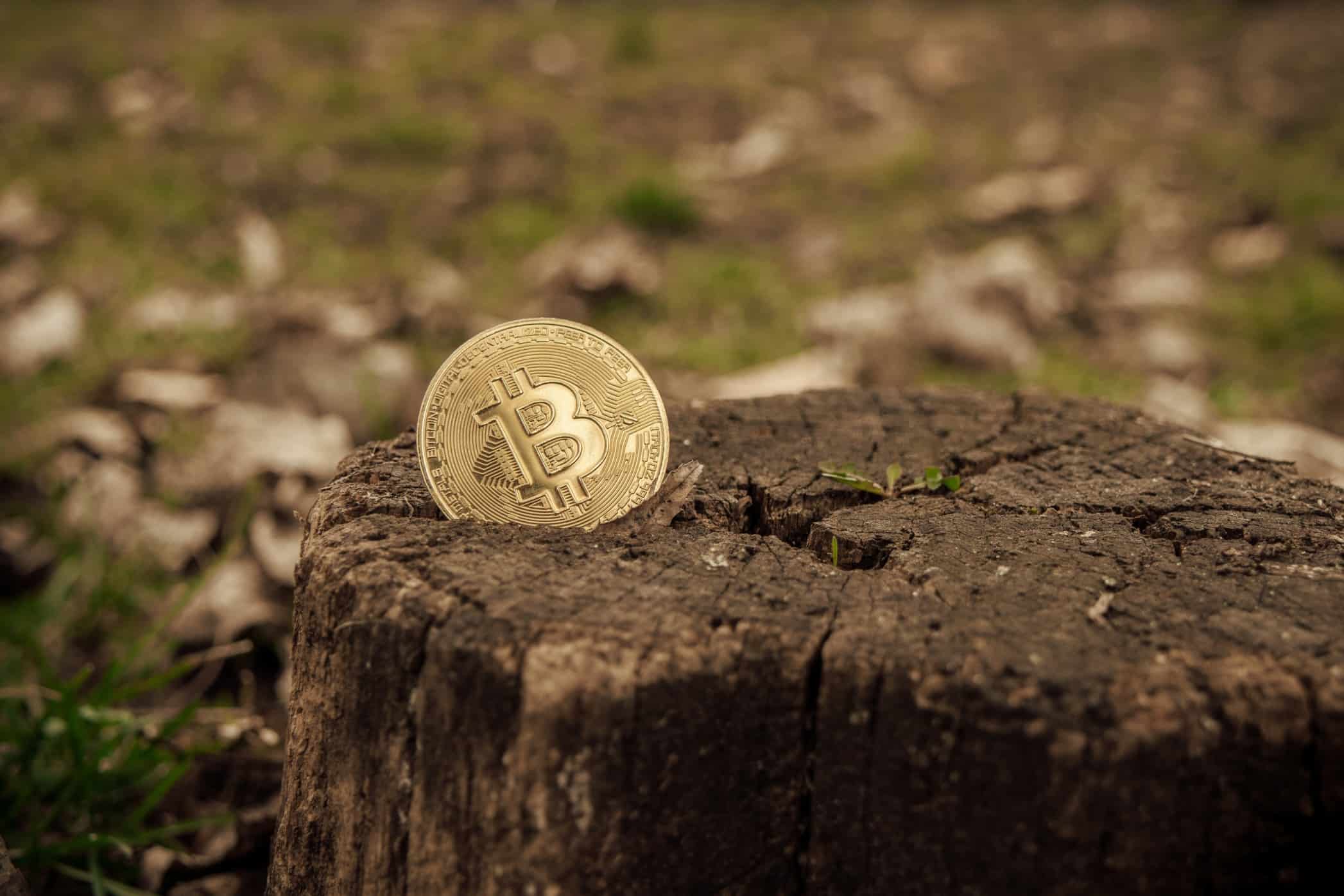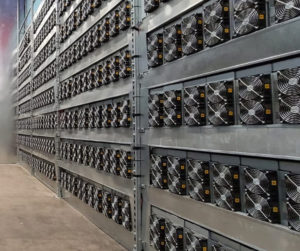As the popularity of Bitcoin has grown, so has the need for regulations surrounding mining activities. Governments and regulatory bodies around the world have begun to implement rules and guidelines to ensure that mining activities are conducted in a legal, ethical, and sustainable manner.
One of the main reasons for the implementation of Bitcoin mining regulations is to prevent illegal activities such as money laundering, tax evasion, and fraud. Because Bitcoin transactions are anonymous and decentralized, it has attracted individuals looking to capitalise on these features for their own benefit. By regulating mining activities, governments can better track and monitor transactions, ensuring that they comply with existing laws and regulations. This helps to protect consumers and investors from potential scams and fraudulent activities.
The process of mining Bitcoin uses a significant amount of power, which in turn consumes a large amount of electricity. This has raised concerns about the environmental impact of Bitcoin mining, particularly in regions where fossil fuels are the primary source of energy. These concerns have prompted calls for stricter regulation of Bitcoin mining to minimise its carbon footprint and mitigate its contribution to climate change.
In addition to the high energy consumption, BTC mining also generates a significant amount of heat. This heat can contribute to global warming and worsen the already existing environmental issues. Additionally, the mining process can also produce electronic waste, further adding to the environmental impact of mining. These concerns highlight the need for regulations to address the environmental impact of Bitcoin mining.
Bitcoin mining is a decentralised process, meaning that it is difficult to enforce regulations on individual miners. Additionally, the global nature of BTC mining makes it challenging to coordinate regulations across different jurisdictions. Despite these challenges, it is crucial to address the environmental concerns surrounding mining to ensure the long term sustainability of the industry.
In response to these concerns, some jurisdictions have begun to implement regulations aimed at reducing the environmental impact of Bitcoin mining. For example, some countries have imposed restrictions on the use of fossil fuels for mining operations, while others have introduced incentives for miners to use renewable energy sources.
Economic Impact
One of the key economic impacts of Bitcoin mining regulations is on the profitability of mining operations. Regulations can influence the cost of mining equipment, access to electricity, and tax implications for mining companies. By imposing strict regulations, governments can increase the barriers to entry for mining operations, leading to consolidation in the industry and potentially reducing competition. This can also impact the decentralisation of the Bitcoin network, as larger mining operations may have more influence over the network’s operations.
Regulations that increase the cost of electricity, such as carbon taxes or limits on energy consumption, can significantly affect the profitability of mining operations. This can lead to miners relocating to countries with lower energy costs or using more energy efficient mining hardware to remain competitive in the market.
Legal and Compliance Issues
One of the issues surrounding Bitcoin mining is the electricity consumption required to power the mining equipment. Some countries have introduced regulations to limit the energy consumption of Bitcoin mining operations, while others are exploring ways to incentivise miners to use renewable energy sources. Compliance with these regulations can be a challenge for miners, who must balance the need to be profitable with the need to be environmentally responsible. Failure to comply with regulations could result in fines or shutdowns of mining operations, making it crucial for miners to stay up to date on the latest legal requirements.
Another compliance issue facing Bitcoin miners is the need to adhere to anti money laundering (AML) and know your customer (KYC) regulations. Bitcoin transactions are anonymous, making it a target for money laundering and other illicit activities. Governments are imposing stricter regulations on cryptocurrency exchanges and miners to prevent these activities from taking place. Miners must ensure that they are following these regulations to prevent them from being caught up in illegal activities or inadvertently facilitating money laundering. By staying compliant with AML and KYC regulations, miners can help protect the integrity of the Bitcoin network and maintain the trust of consumers and regulators.
Regulation in North America
In North America, the federal government has yet to establish comprehensive regulations for Bitcoin mining, leaving it largely to individual states to determine their own policies. Some states, like Texas, have implemented policies that encourage Bitcoin mining, such as their deregulated electricity market. Whereas other states, like New York, have taken a more cautious approach, focusing on environmental concerns and energy consumption. For example, miners in New York are required to use renewable energy sources and properly dispose of their electronic waste along with adherence to emissions standards.
In Canada, the federal government has taken a more proactive approach, outlining guidelines for energy consumption and environmental impact, while individual provinces also have varying regulations related to taxation and land use. The Canadian government has also taken steps to combat illicit activities associated with Bitcoin. By joining forces with organisations like the Financial Action Task Force (FATF) and other global regulatory bodies, Canada is able to share information, best practices, and collaborate on investigations to identify and apprehend individuals participating in illegal behaviour using Bitcoin.
Currently, Bitcoin mining is legal in Mexico, with no specific regulations governing the industry. However, the government has indicated that it is looking into implementing regulations to address issues such as environmental concerns, electricity consumption and potential financial risks associated with mining.
Regulation in Europe
The European Union introduced the world’s first comprehensive cryptocurrency regulations in May 2023, known as the Markets in Crypto-Assets Regulation (MiCA). This is a framework that defines crypto assets, how they are regulated, who can regulate them, and requirements for anyone providing crypto products and services.
In countries like Iceland, where electricity is generated almost entirely from renewable sources, the environmental impact of mining is slightly reduced. However, in countries with a high reliance on fossil fuels, such as Poland and Kazakhstan, the carbon emissions from mining can be substantial. As a result, these countries have introduced regulations aimed at reducing the energy consumption of mining operations.
In addition to energy consumption, there are also concerns about the concentration of mining power in the hands of a few large players. In Europe, much of the mining activity is controlled by a small number of mining pools based in China and other countries. To address this issue, some European countries have introduced regulations to encourage decentralisation in the mining industry. For example, Germany has implemented regulations that limit the size of mining operations and encourage smaller players to participate in the mining process.
Another issue facing bitcoin mining in Europe is the impact on local communities. In countries like Sweden and Norway, where energy costs are relatively low, mining operations have flooded in, putting strain on local infrastructure and driving up prices for residents. To address this issue, some European countries have introduced regulations that require mining companies to pay a fee based on their energy consumption, which is then redistributed to local communities to offset the impact of mining.
Some countries, such as Switzerland and Estonia, have embraced cryptocurrency technology and are actively exploring ways to leverage blockchain technology for public services. For example, Estonia has implemented a blockchain based e-residency program that allows non residents to access government services online.
One of the key regulations in the UK related to Bitcoin mining is the requirement for miners to obtain a license from the government. This license outlines the responsibilities and obligations of Bitcoin miners, including compliance with energy efficiency standards and the use of environmentally friendly practices. By requiring miners to obtain a license, the UK government aims to ensure that Bitcoin mining operations are conducted in a transparent and accountable manner. The UK government has also implemented regulations aimed at curbing the environmental impact of Bitcoin mining. For example, miners are required to disclose their energy consumption and carbon emissions.
Regulation in Asia
China, once the world’s largest BTC mining centre, has taken a strict stance against the industry. In May 2021, the Chinese government banned all cryptocurrency mining operations, citing concerns about energy consumption and financial stability. This forced thousands of miners to relocate or cease operations.
Japan requires miners to obtain a licence from the Financial Services Agency (FSA) in order to legally operate a mining operation in the country. Bitcoin miners in Japan are also required to comply with anti money laundering and know your customer regulations. The government also considers income from Bitcoin mining to be taxable, meaning failure to comply with tax laws can result in fines and penalties. Japan also requires miners to implement robust security measures such as encryption, firewalls and physical security controls to protect against cyber attacks and other security threats.
Similarly, South Korea requires miners to obtain a license from the Financial Services Commission (FSC) in order to operate legally. The government also requires miners to register with the Korea Financial Intelligence Unit (KFIU) and comply with AML and KYC regulations.
Regulation in South America
In countries like Colombia and Venezuela, Bitcoin mining has been viewed as a way to boost the economy and create new job opportunities. These countries have seen a growing interest in mining, due to cheap electricity and access to resources.
Countries such as Argentina and Brazil have implemented stricter regulations on Bitcoin mining in an effort to control its growth and mitigate its environmental impact. Argentina has placed restrictions on the importation of mining equipment and requires mining operations to be registered with the government. Brazil has also taken steps to regulate Bitcoin mining, requiring miners to obtain licences and adhere to environmental standards.
Regulation in Africa
Many African countries have not yet developed specific laws or guidelines for Bitcoin mining, however some have begun to take steps to regulating the industry. For example, South Africa aims to establish a regulatory framework that addresses issues such as consumer protection, financial stability and preventing illegal activities.
Other African countries, such as Nigeria and Kenya have also shown interest in regulating Bitcoin mining. In Nigeria, mining is regulated by the central bank, which requires mining operations to be registered and comply with reporting and tax requirements. In Kenya, the Capital Markets Authority (CMA) oversees the cryptocurrency sector and ensures all miners comply with the set regulations. This includes registering with the CMA, paying the appropriate fees and fulfilling any other requirements stipulated by the government.
Regulation in Oceania
In Australia, Bitcoin mining is legal and regulated by the Australian Transaction Reports and Analysis Centre (AUSTRAC). This regulatory body oversees the compliance of Bitcoin miners with anti money laundering and counter terrorism financing laws. Miners are required to register with AUSTRAC and adhere to strict reporting requirements to ensure transparency and accountability in their operations. While in New Zealand, there is no legislation specifically regulating cryptocurrencies, however contract and tax laws do apply.






